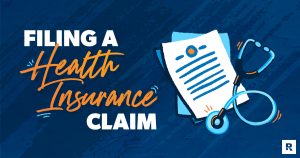Key takeaways
- Veterans face unique financial challenges after service, including increased medical care requirements and difficulty adjusting to independent civilian life.
- Many resources are available to help veterans manage their debt and improve their finances.
- Credit counseling, student loan forgiveness, low down payment home loans, debt consolidation, tax preparation and homelessness prevention can all reduce financial burdens.
After protecting our country from foreign enemies, many military veterans must fight a private battle against a different kind of enemy: debt.
Veterans often deal with debt from various sources, including auto loans, personal loans, student loans, medical expenses and credit cards. With recent increases in the cost of living, it has gotten harder for veterans to pay for housing, food and utilities, let alone pay down debt.
Fortunately, many resources are available to veterans trying to combat debt.
An overview of veterans and debt
Making ends meet for some of the roughly 18 million military veterans in the U.S. can be a burden. According to survey data from the Pew Research Center, 35 percent of veterans had trouble paying bills in the first few years after ending their military service.
Post-service issues that veterans struggle with can aggravate these debt problems:
- Declining credit scores: On average, credit scores dropped by 21 points in the year after leaving military service (among those who had spent at least three years in active service). Lower credit scores can result in higher interest rates on loans, which in turn results in higher monthly loan payments.
- Food insecurity: Some veteran families experiencing food insecurity turn to loans or credit cards to help put food on the table. A quarter of veteran families reported having less than $500 in an emergency savings fund or no fund. One in five military families report experiencing food insecurity.
- Housing costs. The same 2023 MFAN study found that 79.8 percent of respondents carry the burden of paying more than they can comfortably afford for housing.
- Medical debt. Medical care is expensive for all Americans, but veterans are particularly vulnerable to medical debt due to injuries (both physical and mental) received during service. The Department of Veterans Affairs (VA) holds an estimated $382 million in medical debt against 875,000 veterans.
- Student loans to cover living expenses. Despite generous education benefits offered through the GI Bill, veterans often need student loans to cover living expenses while in school. A Pew survey published in 2023 notes that 58 percent of veterans who had taken out student loans report doing so mostly to cover living expenses.
How to handle debt as a veteran
If you’re feeling overwhelmed by debt, there are a few practical steps you can take to get your finances in order.
Create a budget
A budget outlines income and expenses for the household.
Start with the amount of income your household can expect to bring in each month. If you have side hustles or are self-employed with varying income, make a reasonable estimate that you can use for help planning.
Then, list your fixed expenses (those that remain steady from one month to the next), such as housing, car payments and insurance premiums.
Then list your variable expenses (those that change from month to month), like utilities, food, gas and entertainment, and how much you want to set aside for those costs.
Reduce costs where possible.
With a few simple changes, you might be able to find cheap car insurance for veterans or save money on your utility bills.
Explore health insurance
Once you’re out of the military, you may no longer enjoy access to government-sponsored health insurance, but you can take advantage of insurance deals for veterans and benefits from the U.S. Department of Veterans Affairs (VA).
Those benefits likely won’t extend to your family. You might need to look into private health insurance for them.
Create an emergency fund
Building your emergency savings prevents minor financial challenges from spiraling into high-interest credit card debt. Start as small as you need to. Every little bit helps.
Pay down high-interest debt
High-interest debt can eat away at your wallet. Reducing this debt puts more money in your pocket for necessities like housing and groceries.
Build good credit
Good credit can make future debt more manageable by earning you a lower interest rate, which can reduce monthly payments.
Build good credit by paying your bills on time, keeping your credit card debt below 35% of the credit limit and allowing lines of credit to remain active even once the balances are paid off.
Invest wisely
Don’t allow debt to prevent you from investing. The earlier you begin investing, the more time your investments have to grow in value.
Once your high-interest debts are repaid, you can funnel the money from those payments into investing in some of the best investments for military families.
Financial assistance programs for veterans
If you need help with debt as a veteran, several initiatives can help you improve your finances.
Debt management
If you are struggling with high-interest credit card debt, consider applying for a balance transfer credit card. This type of credit card allows you to transfer your existing balance to a 0% interest card, preventing your debt from growing due to interest as you pay it down.
If you have VA debt (perhaps because of medical co-payments or benefit overpayments), you can contact the VA directly to arrange a debt repayment plan.
Consider a nonprofit debt consolidation service if your debt goes beyond manageable credit card debt. This low-cost (or even free) service can provide a debt management plan to help you catch up on payments and get out of debt. You might also consider a debt settlement company in some cases.
Credit counseling
Nonprofit credit counseling agencies often provide free services to veterans. For example, the Military Reconnect program, offered by Money Management International, can help you repair your credit score so you can qualify for lower-interest loans in the future.
If you need more help, you could consider working with a credit repair company.
Education
If you are looking to take courses or get a degree, your GI Bill educational benefits can make higher education more affordable.
If you already have student loan debt, take heart. The federal government is ramping up student loan forgiveness for veterans to hundreds of millions of dollars.
Food insecurity prevention
Food and nutrition services are in place to help veterans who cannot afford to eat.
Depending on your circumstances, you and your family might qualify for programs like the Supplemental Nutrition Assistance Program (SNAP), Women, Infants and Children (WIC), the Food Distribution Program on Indian Reservations (FDPIR) or Summer Food Service Program (SFSP).
Special home loans for military members and veterans
For those who want to buy a home, the VA offers special home loan benefits.
VA home loans are backed by the VA, which allows lenders to provide favorable terms, like lower interest rates and lower down payments than conventional home loans. This can make homeownership more accessible for veterans and their families.
VA loans can even be used to purchase multi-family buildings with up to four units as long as you occupy one of the units as your primary residence. This provides a unique opportunity for veterans to get into real estate investing and earn income from rental units.
Homelessness prevention
If you’re struggling to make the payments on your existing mortgage, the National Foundation for Credit Counseling’s foreclosure prevention program can help you keep your home.
If you are homeless or in danger of becoming homeless, look into the VA homeless programs, which aim to eradicate homelessness for veterans.
Tax preparation
Veterans are entitled to free tax advice and tax filing preparation from the Internal Revenue Service (IRS).
More financial resources for veterans
Aside from medical benefits, the VA provides resources to help veterans adjust to post-military financial life.
Other organizations that lend a financial helping hand to veterans include:
The bottom line
For a military veteran, confronting debt can be tougher than basic training. Yet despite the daunting prospect of juggling a mortgage, student loans, credit card bills and other debts, veterans can maneuver this financial minefield by practicing smart money management.
Take advantage of programs set up to help those who’ve served their country take command of their debt.
Read the full article here










